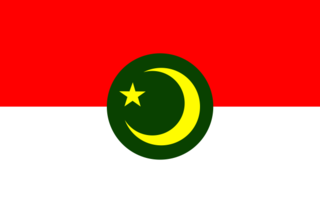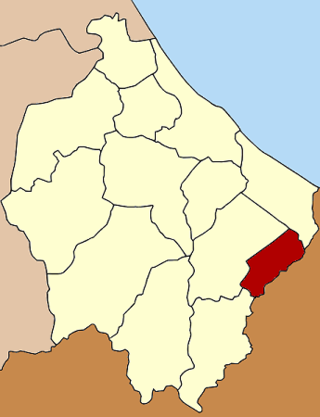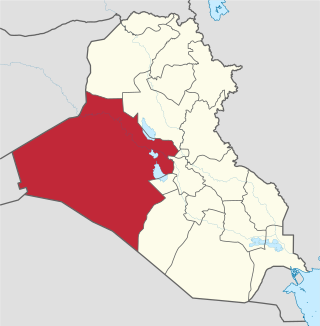
The Southern Thailand Insurgency is an ongoing conflict centered in southern Thailand. It originated in 1948 as an ethnic and religious separatist insurgency in the historical Malay Patani Region, made up of the three southernmost provinces of Thailand and parts of a fourth, but has become more complex and increasingly violent since the early 2000s from drug cartels, oil smuggling networks, and sometimes pirate raids.

The Barisan Revolusi Nasional Melayu Patani, also known by the shorter form Barisan Revolusi Nasional ), meaning "National Revolutionary Front", is an Islamist Patani independence movement in northern Malaysia and Patani, southern Thailand. As of 2017, it is the most powerful rebel group in the region.
Incidents of terrorism in Thailand are mostly related to the South Thailand insurgency, which has been going on for decades. Sporadic incidents have also occurred elsewhere, although such events are much less common.

Makhachkala Rus bombing was a July 1, 2005 incident in which at least 11 members of the elite Rus unit of the Russian federal Internal Troops were killed and 25 people wounded in the bomb attack outside a public bath in Makhachkala, Dagestan.
Somchai Neelapaijit, a Thai Muslim lawyer and human rights activist who "disappeared" 12 March 2004 during Thaksin Shinawatra's regime. On that date, Somchai was last seen in Ramkhamhaeng where eyewitnesses saw four men dragging him from his car. He has not been seen since.

The death of Phamon Phonphanit is about the journalist who died during a bombing on September 16, 2011. Phonphanit was a journalist in Narathiwat province, Thailand and he died while covering the bombing in Sungai Kolok. Six people died as a result of the incident, and about 100 were injured. The incident caused a public and media discussion about the South Thailand insurgency as a result of criticism over the government's initial reaction, especially the contradictictory information delivered by the military, who called it a drug war retaliation, and the police, who said it was conducted by insurgents.
The Pattani Islamic Mujahideen Movement is an Islamist militant insurgent group that has carried out violent actions as part of the protracted insurgency in Southern Thailand.

The Group of Popular Combatants is a far-left Marxist–Leninist insurgent movement active in the Republic of Ecuador. It is the armed wing of the Marxist–Leninist Communist Party of Ecuador, a party formed in 1964 as a split from the Communist Party of Ecuador and internationally affiliated with the International Conference of Marxist–Leninist Parties and Organizations. The party belongs to an anti-revisionist tradition of Marxism–Leninism, one originally aligned with Albania during the Cold War and frequently referred to as Hoxhaism.
This article lists a chronology of events in the South Thailand insurgency from the 1960s. Most take place in the Muslim-majority, contested provinces of Narathiwat, Pattani, and Yala in the far south of Thailand bordering Muslim Malaysia.
Tanyong Mat railway station is a railway station located in Tanyong Mat Subdistrict, Ra-ngae District, Narathiwat, Thailand. The station is a class 1 railway station located 1099.503 km from Thon Buri railway station. Tanyong Mat opened in March 1920, as part of the Southern Line Balo-Tanyong Mat section.
Rueso railway station is a railway station located in Rueso Subdistrict, Rueso District, Narathiwat. It is a class 1 railway station located 1,071.191 km (665.6 mi) from Thon Buri railway station.

The Hīt shooting occurred on 30 October 2014 when insurgents from the Islamic State of Iraq and the Levant (ISIL) killed at least 75 members of the Albu Nimr tribe in Hīt, a town in Al Anbar Governorate.
The year 2019 is the 238th year of the Rattanakosin Kingdom of Thailand. It is the fourth year in the reign of King Vajiralongkorn, and is reckoned as year 2562 in the Buddhist Era.
Ethnic conflicts involving the Fulani people occur in West Africa, primarily in Nigeria, but also in Mali, Cameroon, the Democratic Republic of Congo, and the Central African Republic, due to conflicts over land and culture. The death count for each attack is small, although the cumulative death count is in the thousands.

On 2 August 2019, series of small bombs have detonated over five locations throughout Bangkok Metropolitan Area. The blasts location included Chong Nonsi BTS Station, near the King Power Mahanakhon tower, the Chaengwattana Government Complex, the Royal Thai Armed Forces Headquarters, and inside a branch of Miniso; a utility goods store at Siam Square One. The blasts have resulted in total of seven injuries.







